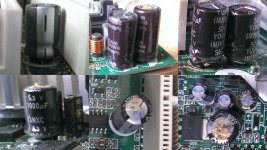if it's restarting in all those under heavy load, then yea. but possibilities are literally endless. from bad ram to psu, etc...
quickest/easiest way to perform those tests is:
check event viewer, crash logs, etc... for any info that may give you a clue as to the problem.
test ram using memtest86+/windows memory diagnostics(latter only supports 4gb). or test with both, for several hours/several passes.
test HDD for bad sectors using chkdsk c: /r (can also cause shutdowns, especially if in registry, system or pagefile).
if it's an ssd: flash/nvram corruption is just as bad an issue in some cases. sometimes, the drive won't handle them properly or detect them as bad. sometimes manufacturer will provide some diagnostics tools (but they might not detect error in all cases, or intermittently)...
test system files using sfc /verifyonly (to just check), or /scannow (to replace corrupt files), may need windows w/service pack disc.
make a backup at this point, if you plan to tinker with hardware, and disconnect your HDD.
inspect your m/b and other components for enlarged/corroded capacitors, if your board still uses electrolytic types.
clean the dust out of your junk and test components/power supply. testing ps/u you prob don't have the tools for anyways and there's potential for serious damage if you play around with a faulty power supply. ;p (oh and don't blow dust into your ps/u, lest it get wedged somewhere and start building up heat).
turn it back on for a few mins and make sure it doesn't blow up (will make a big boom, hard to miss), before reconnecting HDD.
update bios/drivers? reinstall directx? reinstall windows?...
with all that ruled out, bad drivers can still cause bsod/instant reboot, but you should have checked all that in event viewer and crash dumps.
pictures of busted capacitors while u wait ;p... curiously, this board continued to function with 100% uptime for a few months before i even noticed there was a problem when it came to cleaning out my PCs (yes, all from a single board... literally walking corpse). haha. but that rarely happens, usually fatal error (this was some demon/jesus board).




